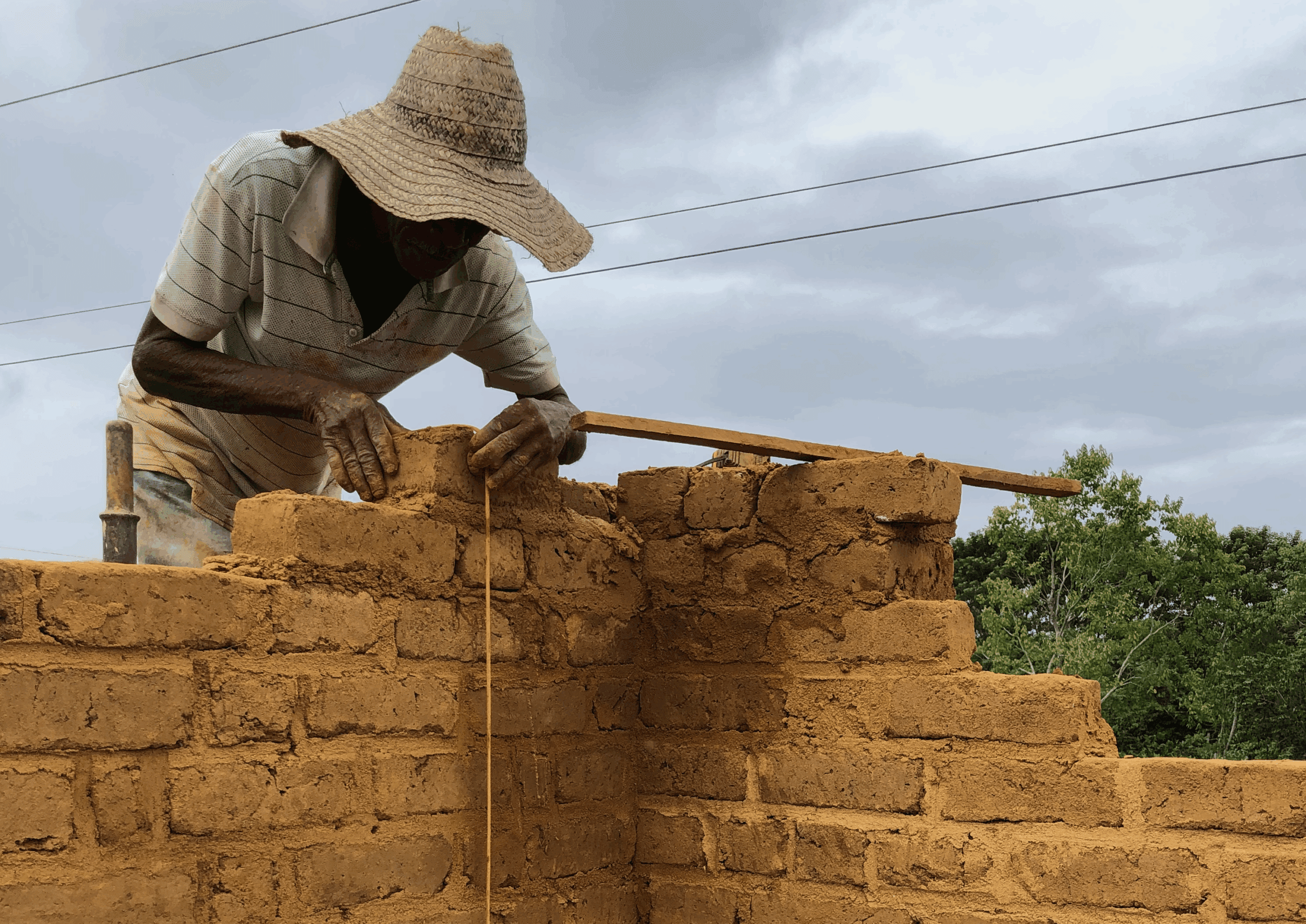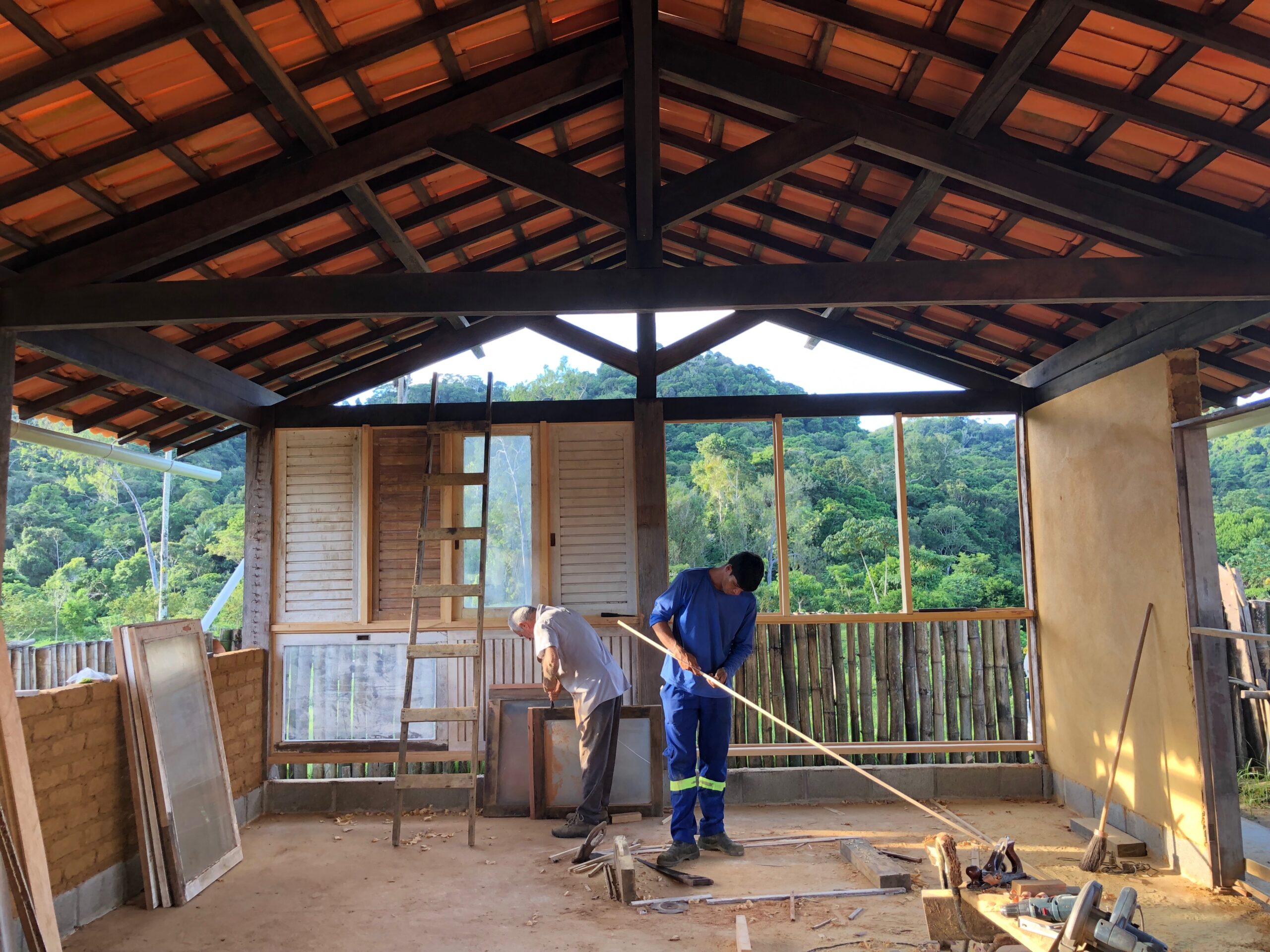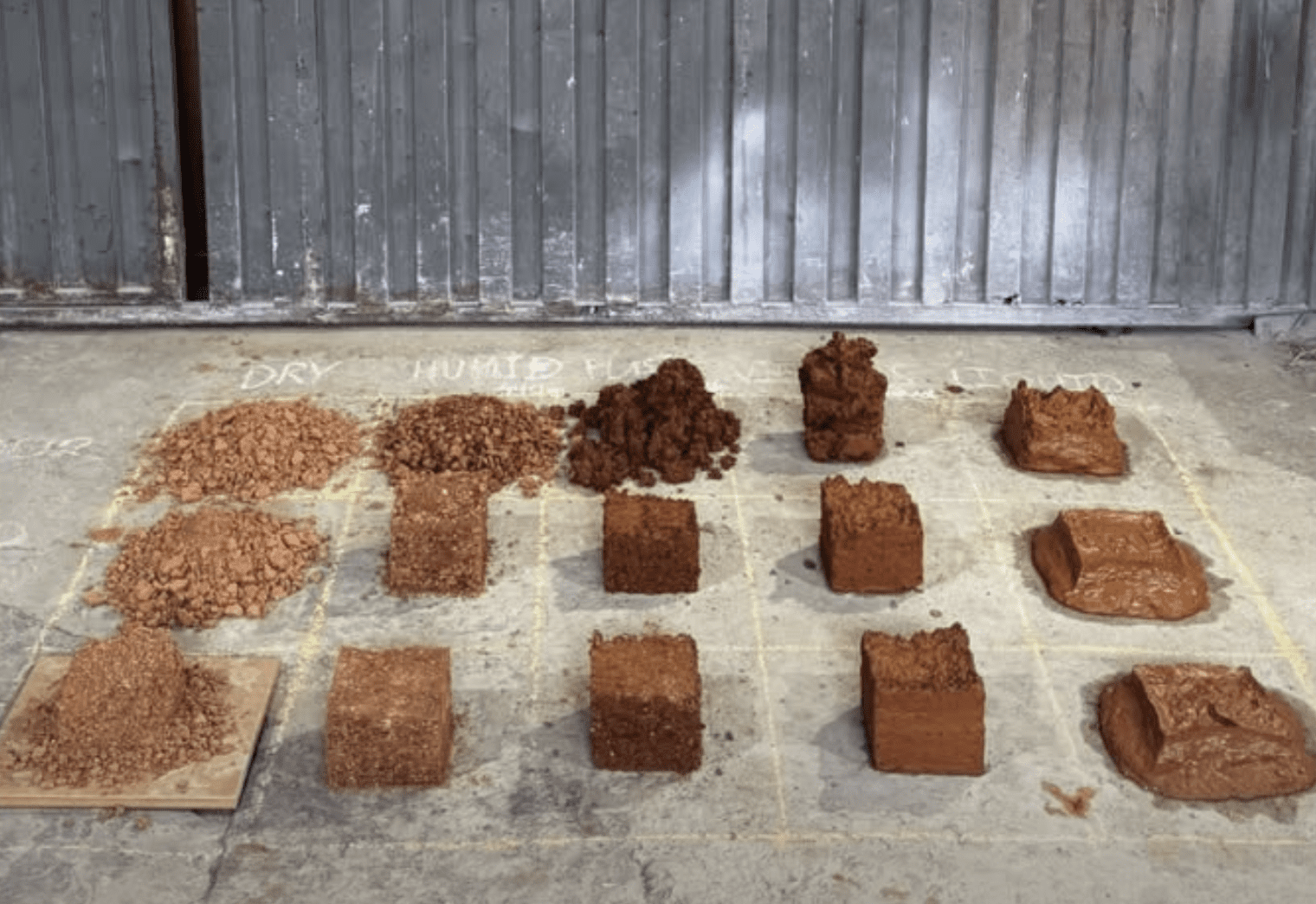Lecture and debate with Akemi Ino, Leticia Grappi, Natalia Lessa, Karina Schwartzman and mediation by Graziela Nivoloni
Leticia Grappi
An architect from the Federal University of Bahia (UFBA), she strives to work on projects and projects with low environmental impact. She was the architect responsible for the construction of a school and library in the João Amazonas Settlement in Ilhéus, Bahia. She was a member of the TerraBrasil 2024 Congress Coordination Committee, a member of the TerraBrasil Network from 2022 to 2024, a technical reviewer for Gernot Minke's book "Manual de Construção com Terra" (Manual of Construction with Earth), co-creator of mapadaterra.org, and founder of the group "Mulheres na Bioconstrução" (Women in Bioconstruction).
Akemi Ino
Full Professor, Associate Doctor (2008) at the Institute of Architecture and Urbanism (IAU USP), currently Vice-Director of the IAU (2024-2028), held the position of Vice-President of the IAU Graduate Committee in the 2016-2018 and 2018-2020 management, Master's and Doctorate advisor of the Graduate Program in Architecture and Urbanism of the Institute of Architecture and Urbanism of USP is coordinator of the HABIS Research Group (Housing and Sustainability), created in 1993 registered in the CNPq Directory. Graduated in Civil Engineering from USP (1979); Master's in Architecture and Urbanism from EESC USP (1984-Temporary house using corrugated cardboard); Specialization at Osaka City University (1987) Japanese Wooden Housing; PhD in Civil Engineering from the Polytechnic School USP (1992) Modular Structural System in Round Eucalyptus for Housing and Free Teaching from IAU USP (2008) Technologies in social housing, Research, Extension and Teaching, a reflection of the trajectory at the public university.
Natalia Lessa
A founding partner of Arquivo, she holds a degree in Architecture from UFBA (Federal University of Bahia). She coordinates the dismantling and recycling of materials from properties in the city of Salvador and provides consulting services on public policies related to dismantling and the circular economy for public and private clients. She has served on project committees at national and international universities (Architectural Association UK, UFBA, UFMG, SENAI, and UFRJ).
Karina Schwartzman
She holds a degree in architecture from the Ibero-American University and a master's degree in Bioclimatic Architecture from Isthmus Panamá. She is the founder of the architectural firm Tecorral Estudio, with over 15 years of experience completing projects at various scales, from master plans to houses and property conversions, among others. She specializes in regenerative design, biomimicry, ecovillage design and permaculture, Gaia Alchemy, U-lab, transformational coaching, and deep ecology. She teaches socio-environmental advocacy projects at the Ibero-American University of Mexico City, where she won the UBUNTU award. Together with Karen Poulain, Alan Cohen, and Diego Pontones, she founded SEED, a company focused on innovating earth construction techniques, such as poured earth and 3D earth printing. They are currently building the first 3D-printed, self-supporting habitable module in Latin America. They also have a laboratory where they hold events and workshops focused on sharing knowledge about ancestral earth construction techniques and biomaterials.
Graziela Nivoloni
An architect and urban planner with a master's degree in Design from the University of São Paulo, Graziela Nivoloni works at the intersection of education, nature, and organizations through a systemic approach and collective intelligence. At IED, she leads the Biodesign | Circularity and Biomaterials Laboratory, coordinates the undergraduate program in Product and Service Design, and coordinates courses in partnership with Casa Vogue. She also serves on the academic board of the Center for Innovation, Design, and Business (CR+IED).
Free
Registration
Registrations must be made here.
Selection will be made in order of registration.
Registration will be open until the start of the activity, on site, as long as there are spaces available.




